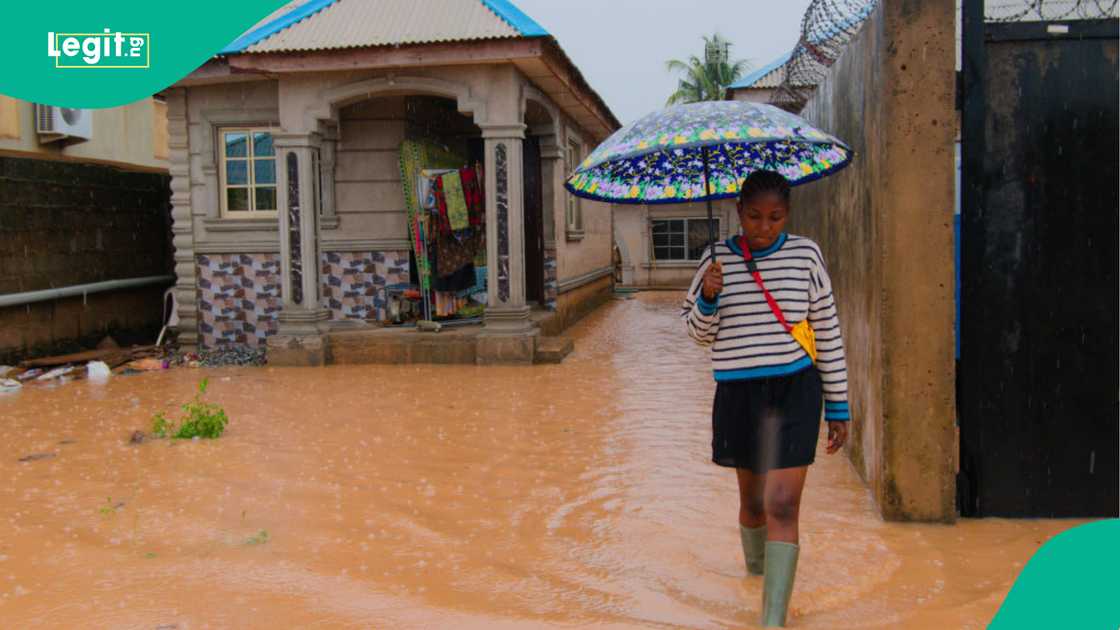Hurricane Helene’s Path of Destruction: 30 Dead, Power Outages and Flooding Across State
- Hurricane Helene has left a trail of devastation across North Carolina, with Buncombe County suffering the most severe impact
- At least 30 people have been confirmed dead in Buncombe County alone, as emergency crews continue to battle widespread power outages and flooding
- The storm, which began as the most powerful hurricane to hit Florida’s Big Bend, has caused catastrophic damage as it moved north through Georgia and the Carolinas
In the wake of Hurricane Helene, at least 30 people have died and scores more are unaccounted for in Buncombe County, North Carolina.
The storm, which tore across the state causing catastrophic flooding, has left a clearer image of its devastation as it moved through Florida and Georgia.

Source: Getty Images
Buncombe County, home to the mountain city of Asheville, appears to be the hardest hit.

Read also
Tragic explosion: One feared dead, several injured as improvised device detonates at Sapele dumpsite
“We have biblical devastation,” said Ryan Cole, an emergency official in the county. “This is the most significant natural disaster that any one of us has ever seen.”
Hurricane Helene claims 30 lives
Nationwide, at least 116 people have died since the hurricane made landfall in Florida on Thursday, according to CBS, and that figure is expected to rise as officials reach more areas. Helene, the most powerful hurricane on record to hit Florida’s Big Bend, moved north into Georgia, the Carolinas, and Tennessee, with the majority of deaths confirmed in North and South Carolina where it landed as a tropical storm.
On Sunday evening, officials in North Carolina reported 30 deaths in Buncombe County alone. Crews across the state are battling power and mobile service outages, downed trees, and hundreds of closed roads.
Some residents returned on Sunday to find their homes entirely destroyed. With around 1,000 people still unaccounted for in Buncombe County, relatives are working to locate family members with limited mobile service.
The American Red Cross has opened more than 140 shelters for those in southeastern states who evacuated their homes.
More than 2,000 people are currently using the shelters, the organization said on Sunday. Many petrol stations are closed throughout North Carolina, with long queues of cars at those that remain open. Meanwhile, the few open supermarkets have been crowded with customers attempting to buy bottled water.
Consistent flooding drives an advocate's passion
Solomon Dayo, a climate change advocate, told Legit.ng that the effect of flooding is also felt in Nigeria.
"Growing up in Lagos, I witnessed the first hand effect of climate change where communities are being flooded because of rise in sea level combined with clogged up drainages from indiscriminate disposal of waste. I didn’t understand all of these as effects of climate change till I got admission to university and I started volunteering in 2019, then I could relate all the experiences to adverse effects of climate change. These experiences made me enthusiastic about promoting climate action for a better environment in Nigeria. My continuous activism comes from a place of passion and understanding how the adverse effects of climate change have affected and are affecting vulnerable communities. So I believe that little efforts translate to BIG IMPACTS."
29 killed, 321,000 houses submerged after flooding
Meanwhile, Legit.ng earlier reported that the Kebbi state government led by Nasir Idris said that 29 people, 321,000 houses, and 858,000 farmlands have been lost to floodwaters in 16 of the 21 local government areas in the state.
Ahmed highlighted that before NiMET predicted Kebbi would be worst hit, the state had already faced significant flooding due to water from Goronyo dam and the convergence of waters from River Rima and River Kaa through River Niger.
PAY ATTENTION: Сheck out news that is picked exactly for YOU ➡️ find the “Recommended for you” block on the home page and enjoy!
Source: Legit.ng




